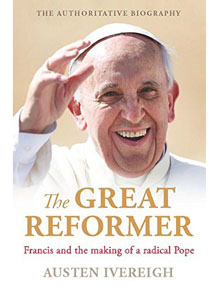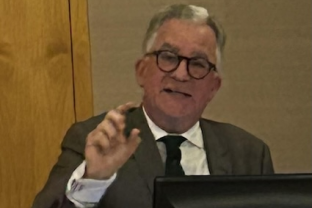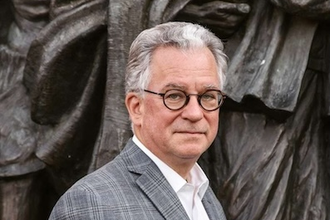Book: The Great Reformer: Francis and the making of a radical Pope

"The Great Reformer: Francis and the making of a radical Pope"
by Austen Ivereigh, publisher: Allen & Unwin, 2105
A recent profile of Pope Francis in Der Spiegel* reports a Vatican whispering campaign against the Argentine pontiff. When Francis highlighted the pomp and ostentation of the clergy, it was "an unspoken declaration of war, especially against the Vatican Curia." By challenging corruption in the Vatican bank, and ex-communicating Mafia bosses, Francis also confronted Rome's unsavoury vested interests, the article suggests. Those plotting against Francis accuse him of caring little for tradition or theology, wondering if his "confusion" will abate by the Synod of Bishops in October.
This whispering campaign makes Austen Ivereigh's biography of Jorge Bergoglio all the more timely.
The story of Bergoglio, as Ivereigh tells it, is also the story of Argentina. The reader must therefore be prepared for his rendering of the junta's dirty war in the 1970s and 1980s, liberation theology, and the resulting splits within the Catholic Church. To this day Bergoglio is a divisive figure because of what he did, or did not do during the dirty war.
There is also much about Peronism, a political label that defies Anglo Saxon understanding of left and right. Hence it is too simple to label Pope Francis as a liberal or a conservative, when he should be viewed in the Argentine context.
Some commentators suggest the transformation of the authoritarian Bergoglio to the Francis who savages exploitative capitalism is due to a life-changing reassessment of his role during the dirty war. But Ivereigh carefully describes a more complex journey, where profound compassion has co-existed with a rejection of political extremes. Bergoglio was always more comfortable among the poor than the Church's ideologues and intellectuals. He also preferred attending fiestas in the slums rather than cocktail parties because "the poor celebrate Christ, not themselves."
Ivereigh conveys a wonderful sense of the keen, earnest, bright young Bergoglio, and the lower middle class Buenos Aires in which he grew up. He has surprised people all his life with his frugality, shunning the trappings of office, using public transportation, making his own phone calls, and cooking and cleaning for himself and colleagues who are unwell.
During the dirty war Bergoglio's superiors instructed him to both protect Jesuits and assist the victims of the repression, which he did, at great risk to himself. "What he did not do was speak out publicly against the regime, but he could hardly have done so without sacrificing his objectives, for no obvious gain," writes Ivereigh.
Bergoglio felt social activism was dangerous at a time when the military government branded as Marxist any priestly activity in the slums. There is persisting controversy about two popular Jesuit priests whom Bergoglio dismissed, exposing them as fair game for arrest and torture, which duly happened.
He was not popular with his fellow Jesuits, being so out of step he was sent to Germany to study. His authoritarian reputation persisted when he returned to Argentina, and he later admitted he had not fitted in. However, when he became archbishop of Buenos Aires he immersed himself in the poor districts, living a life of extreme simplicity which he continues today. He was also forthright in offending the political elite by condemning white collar criminals who donate to their parties, while facilitating illegal drugs, human trafficking and gambling that decimate the slums.
Ivereigh warns the reader not to assume Pope Francis's views on capitalism - "No one can accept the precepts of neo-liberalism and consider themselves a Christian" - mean he is on the left. "Francis's radicalism is not to be confused with a progressive doctrine or ideology. It is radical because it is missionary and mystical."
By mystical he means Francis's respect for local religious customs and rituals, such as pilgrimages to shrines, asking saints to intercede, and reverently touching statues, all of which are popular in Latin America. Throughout his career there has been what Ivereigh describes as "a whiff of anti-intellectualism." Hence Bergogolio advised colleagues to spend less time polishing their theology and more time learning from the people. His regard for Latin American tradition was implicit criticism of John Paul II's centralisation of the Church.
Archbishop Bergoglio risked the contempt of bishops by attacking the "liturgical backwoodsmen" who turned the Church into a "museum piece," the property of a select few. He spoke of self-appointed guardians of orthodoxy "who spend their time inspecting and verifying rather than evangelizing." He associated Rome with "luxury, ostentation, hypocrisy and bureaucracy," comments Ivereigh.
As archbishop he had the Church's finances audited. He is similarly trying to expunge the Vatican of corruption, which he regards as an unforgivable sin "because in a corrupt soul there was no desire for forgiveness."
Ivereigh maintains Francis has quickly restored the Church as an admirable presence. "Catholics no longer had to hunker down defensively," he writes, looking forward to a new unity among the world's 1.2 billion faithful. Or in Francis's words, the Church is a tender mother rather than a harsh judge.
* http://m.spiegel.de/international/world/a-1035629.html#spRedirectedFrom=www&referrrer=
Editor's note: In my view The Great Reformer really is one of the definitive biographies of Pope Francis to date. But as things are moving so quickly - with the forthcoming Encyclical on the Environment, the Papal visit to the USA and Cuba, the Family Synod in October and more, just this year - I imagine a second, updated edition will be needed soon. JS


















